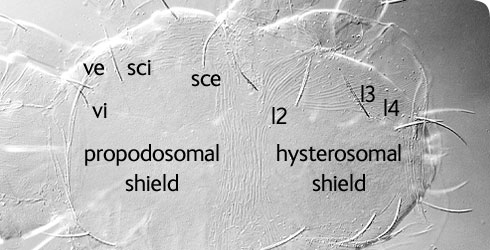Life expectancy
Life expectancy
Environmental conditions affect life expectancy.
At 76 per cent relative humidity (RH) and with Lepidoglyphus destructor (grocers' itch mite) as prey, maximum longevity was:
- 107 days at 18.5°C
- 67 days at 22°C
- 56 days at 25°C
Initial starvation of females prolongs life:
- newly moulted females kept at room temperature and 80-85 per cent RH were starved for 46 days
- from the 47th day onwards, Acarus siro (flour mite) was given as food
- the lifespan of these females averaged 77.3 days as opposed to 56.8 for continuously fed ones
Longevity is also increased at low temperatures:
- some members of a population kept at -1.7 to +2.0˚C and 80-90 per cent RH survived for about six months and were still able to reproduce when exposed to favourable conditions
- the mites went into a quiescent state for the duration of the cold conditions and did not feed or reproduce. (Summers and Witt, 1972; Zdárková and Pulpán 1973; Barker, 1991)
